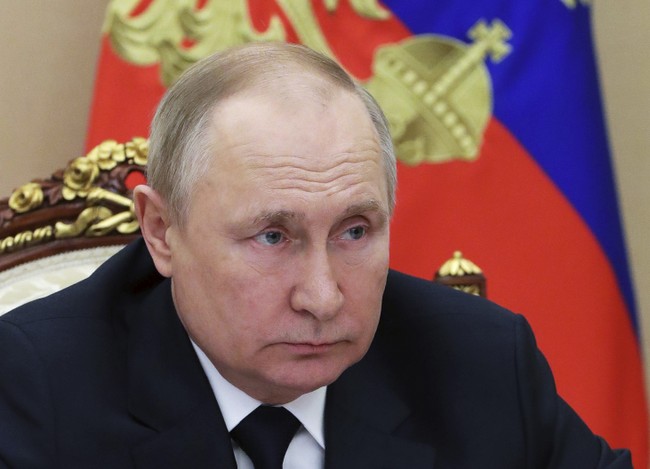
The Bear Growls: But Will It Bite?
It’s easy to dismiss Russia’s latest warning as diplomatic noise, another chest thump from a country overcommitted in Ukraine and desperate for relevance elsewhere. But this time, it’s worth a closer look.
On June 18, Russian Deputy Foreign Minister Sergei Ryabkov publicly cautioned the United States against offering any direct military aid to Israel amid escalating strikes between Jerusalem and Tehran. It wasn’t just a casual press release. Ryabkov emphasized that even theoretical support would “radically destabilize” the region. He didn’t hedge. Moscow made it sound like a red line.
In a world of propaganda and posturing, the question is simple: Is Russia bluffing? Or is this a real warning from a regime with leverage, looking to reshape the chessboard in the Middle East without ever firing a shot?
Let’s examine the three main points that determine whether this growl from Moscow carries teeth.
1. Strategic Noise or Calculated Leverage?
Moscow isn’t barking into the void. The Kremlin rarely speaks without purpose, and in this case, it’s aligning rhetoric with strategy. The timing is deliberate. Israel has launched strikes on Iranian nuclear and military infrastructure, prompting retaliatory missile and drone fire from Tehran. President Trump has made it clear that he won’t rule out joining Israel if things escalate further.
The White House just positioned two carrier groups in the eastern Mediterranean.
So Russia’s warning isn’t being issued in a vacuum. It’s a signal to both Washington and Tehran that it wants to remain the regional referee, not a backbencher. More importantly, Moscow is trying to salvage influence in a Middle East increasingly shaped by Israeli assertiveness and American firepower.
But here’s the reality: Russia isn’t issuing this warning from a position of military strength. Its forces are still deeply bogged down in Ukraine, sanctions batter its economy, and its air force is depleted. Any serious intervention on Iran’s behalf is likely off the table.
So, what does Russia have left? Diplomacy. Nuclear partnerships. Arms exports. And most importantly, a seat at the peace table. That’s what this noise is about.
2. What Russia Can, and Can’t, Do
Russia’s actual options fall into three lanes:
Leverage the UN
As a permanent member of the UN Security Council, Moscow can veto any resolution authorizing military action or reinforcing sanctions on Iran. It can create diplomatic gridlock and frustrate U.S. and Israeli ambitions to isolate the Iranian regime.
Arm Iran Quietly
Moscow’s military-industrial complex is bruised but still functional. Russia has shipped drones, missile systems, and electronic warfare tech to allies before, including Iran. Even amid the war in Ukraine, the Kremlin has kept military supply lines open to its anti-American partners. The Kremlin can restock Tehran’s weapons closets without crossing any NATO red lines.
Mediate for Leverage
This is where Putin’s real game lies. By offering to mediate between Israel and Iran, Russia positions itself as the “adult in the room.” That’s rich coming from a regime that carpet-bombed Aleppo and backs Hezbollah through proxies, but geopolitics isn’t about morals. It’s about leverage.
Putin wants to negotiate a ceasefire, float a deal on nuclear enrichment caps, or offer a security framework that makes Russia look indispensable. The goal isn’t peace. It’s prestige.
But here’s what Russia is not going to do:
- It won’t send troops to defend Iran.
- It won’t open a second front while still bleeding in Ukraine.
- It won’t risk a direct confrontation with U.S. forces in the Mediterranean.
In short, Russia is flexing, not mobilizing.
And that’s precisely what makes the warning serious.
Because Russia doesn’t have to launch missiles to complicate U.S. strategy, it only has to empower Iran, stall diplomacy, and soak the region in enough ambiguity to slow the West’s response.
That’s not just noise. That’s old-school Soviet shadow play.
3. What Happens if the U.S. Steps In?
Now, we come to the real risk.
If the U.S. begins supplying Israel with more than defensive systems, if Patriot batteries become cruise missiles, or surveillance aircraft become bombers, Russia won’t retaliate directly. But the entire regional balance could fracture:
- Iran’s proxy armies, including Hezbollah and the Houthis, will almost certainly respond. Their reach now includes Red Sea shipping lanes, U.S. embassies in Baghdad, and oil terminals in Saudi Arabia.
- Russia’s stake in Iran becomes more fragile. If the Iranian regime falters or appears weak, Putin loses a key trading partner, a significant weapons buyer, and a key anti-Western anchor. That would be a strategic defeat for Moscow, which is why it’s speaking up now. It’s protecting its investment.
- The war in Ukraine could also shift. If American attention pivots hard toward the Middle East, Ukraine’s fight becomes less of a U.S. priority. And that suits Putin just fine.
That might be part of the plan.
A distracted America is a weaker America. Especially heading into an election season where global instability benefits strongmen more than it punishes them.
Final Thoughts
Russia’s warning isn’t empty. But it’s also not a threat of tanks or warships. It’s a statement of strategy.
Moscow knows it can’t afford another shooting war. But it can shape the outcome of this one. If the U.S. throws its full weight behind Israel in a hot war with Iran, it’ll ignite not just a regional wildfire but a geopolitical storm.
Russia wants none of that. But it wants to be feared as if it does. That’s the game.
And in today’s world, fear is often more valuable than firepower.
The smart move isn’t to ignore Russia’s growl. It’s to watch where its shadow falls because that’s where the real pressure points lie.
Washington isn’t listening. We are. Become a PJ Media VIP and help us shift the power back to the people. Use promo code FIGHT for 60% off and stand tall against federal overreach.








